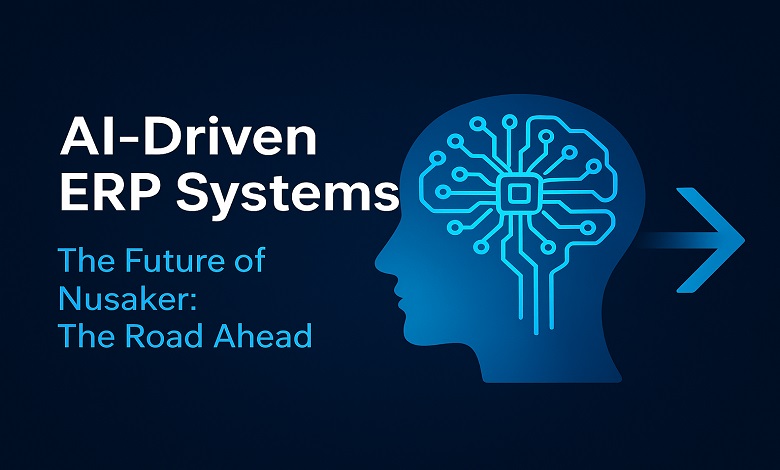If you’ve been following business technology trends, you’ve probably noticed how quickly things are shifting. ERP systems—once seen as just big databases for managing resources—are now evolving into something smarter. The rise of artificial intelligence is reshaping what companies can expect from these platforms.
For Nusaker, this shift isn’t just another IT upgrade. It could define how the company grows, competes, and responds to change. Many experts already talk about the ai driven erp systems future of nusaker as if it’s inevitable. And honestly, it makes sense. When ERP systems can learn, predict, and even recommend actions, the entire approach to management changes.
Why the Future Points to AI ERP
Traditional ERP has always been useful. It keeps records, organizes departments, and ensures data is in one place. But there’s a catch—it mostly reacts. You ask it for a report, and it gives you one. You enter invoices, and it processes them.
AI-driven ERP is different. Instead of waiting for instructions, it works in the background:
- It spots patterns in sales or supply chains before humans notice.
- It predicts outcomes like demand spikes or late shipments.
- It automates tasks that used to eat up hours of staff time.
- It gives managers insights in real time, instead of days later.
That’s why people say the ai driven erp systems future of nusaker is about moving from passive record-keeping to active intelligence.
How It Could Work Inside Nusaker
Picture this: Nusaker is about to launch a new product line. In the past, planning stock levels, marketing campaigns, and staff schedules might involve weeks of spreadsheets and meetings. With an AI-driven ERP system, the process looks different.
The system analyzes past product launches, checks current customer interest from online data, predicts demand by region, and even adjusts supply orders automatically. Instead of reacting, Nusaker gets to stay two steps ahead.
That’s the real promise behind the ai driven erp systems future of nusaker—less guesswork, more precision.
Key Benefits Nusaker Could Gain
Smarter Decisions
AI doesn’t just crunch numbers; it turns them into insights. Leaders can plan with confidence because forecasts are backed by real-time analysis.
Lower Costs
Think of how much time is spent on repetitive admin work—approvals, scheduling, reporting. Automating these saves labor costs and reduces human error.
Happier Customers
With AI predicting buying patterns, Nusaker can stock what customers want before they ask. Faster delivery, fewer shortages, and better personalization all improve loyalty.
Scalability
As the business grows, traditional ERP can feel clunky. AI ERP adapts more easily, adjusting to new markets, product lines, or teams.
Challenges Nusaker Will Face
Of course, no transformation comes without hurdles. The ai driven erp systems future of nusaker also means dealing with some short-term pain points:
- High Setup Costs: Installing AI-driven systems isn’t cheap. But the long-term savings often outweigh the investment.
- Training Staff: Employees may resist change. They need training and reassurance that AI won’t replace them—it will help them.
- Data Issues: AI only works well with clean, accurate data. If the data is messy, insights will be unreliable.
- Integration: Linking new AI ERP with existing tools requires careful planning.
Handled right, these challenges become stepping stones. Handled poorly, they could slow adoption.
Why Timing Matters for Nusaker
Being early matters. If Nusaker adopts AI ERP before competitors, it gets a head start in efficiency, customer service, and market insight. Companies that wait too long may find themselves playing catch-up.
Think about how smartphones changed entire industries. Early adopters thrived; late ones struggled. The same story is playing out with AI ERP. That’s why the ai driven erp systems future of nusaker feels less like a prediction and more like a roadmap.
Example Scenario: Supply Chain Management
Let’s get specific. Imagine a shipment delay from one of Nusaker’s key suppliers. A traditional ERP would only record the delay after it happened. By then, it’s too late to act.
An AI ERP system would scan external factors—like weather updates, transport strikes, or vendor reliability scores. It could flag the risk of delay days in advance and suggest backup suppliers or alternative routes. That kind of foresight could save Nusaker thousands in lost sales and keep customers happy.
The Cultural Side of Change
Technology is only part of the story. To make the ai driven erp systems future of nusaker a reality, the company also needs a cultural shift. Employees need to see ERP as more than software—they need to trust it as a partner.
That means leadership should communicate openly, train teams, and show how AI tools make their jobs easier instead of harder. With buy-in across the organization, adoption becomes smoother and benefits are realized faster.
Looking Forward
The future of ERP will likely bring even more advanced features—things like voice-activated commands, deeper predictive analytics, and eco-friendly supply chain planning. Nusaker has a chance to be on the front line of this change.
Investing now means reaping long-term rewards: stronger decision-making, better cost control, and improved competitiveness. The ai driven erp systems future of nusaker is about preparing not just for today’s challenges but for tomorrow’s opportunities.
Conclusion
ERP has always been about organizing complex systems. But with AI woven in, it becomes something smarter—something that learns, predicts, and helps businesses act before problems arise.
For Nusaker, this isn’t just an upgrade. It’s a transformation. By adopting AI-driven ERP, the company positions itself to operate faster, leaner, and more intelligently than its rivals.
That’s why people talk about the ai driven erp systems future of nusaker with such confidence. It’s not a distant idea—it’s the next logical step. And the companies that embrace it now will be the ones shaping the future, not chasing it.
